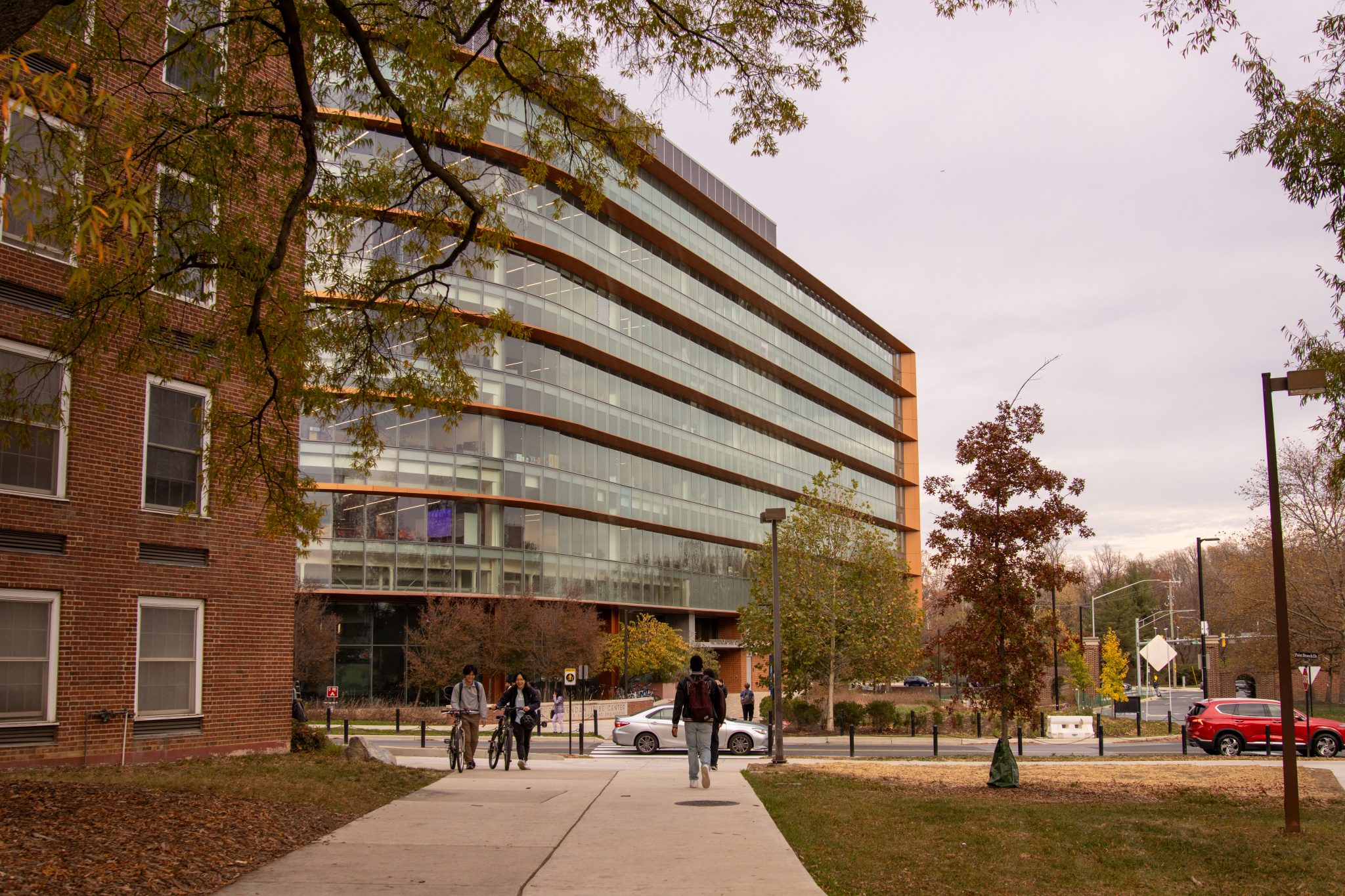More than two years after ChatGPT’s release, University of Maryland leaders continue to explore the use of AI in classrooms.
After ChatGPT launched in November 2022, administration formed a working group on generative artificial intelligence to set principles on how the university would use such technology, according to university president Darryll Pines. Since then, colleges and schools across this university have steadily increased their use of AI in classrooms to examine its applications and stay ahead of the rapidly evolving technology.
“Just like the calculator, it is a tool, but it’s a tool that needs to be monitored,” Pines told The Diamondback. “Every student should have some knowledge of the software, usage of the artificial intelligence, but we have to put some guardrails around it as well.”
AI chatbot ChatGPT can quickly generate unique content, which has sparked controversy in academic settings due to concerns over plagiarism and loss of student learning.
Pines established an AI commission in early 2023 to establish policies and research the ethical use of AI, he said. The commission’s findings led to the university including its entire academic community in the conversation about the use of AI in education, he added.
Susan Rivera, the dean of the behavioral and social sciences school, said the college’s faculty worked closely with experts to understand AI’s impact on education and keep faculty informed on how to effectively incorporate it into their classrooms.
“It was really clear to me early on that it had enormous potential,” Rivera said. “It’s about tapping into that potential, rather than trying to rail against the technology or try to either curtail it or forbid it.”
[UMD to hire 40 faculty members for artificial intelligence institute]
Rivera says it is important to help students realize for themselves both the benefits and potential downfalls of AI in learning.
This university’s teaching and learning transformation center offers AI-related training for instructors to help them incorporate the technology into their classrooms, according to its website.
Business school dean Prabhudev Konana said it is important for students to stay informed and ahead of the AI advancements.
AI applications have already been implemented across the business school through course-specific chatbots that can answer students’ questions on basic concepts, according to Konana.
This semester, this university offered 10 chatbot-assisted courses, including a class in the business school, The Diamondback reported. The chatbots can answer questions about the syllabus, course structure and class material.
The business school hopes to encourage faculty to explore opportunities to use AI to increase productivity, such as using it to help generate code, according to Konana.
Stephanie Shonekan, the dean of the arts and humanities college, initially reacted to ChatGPT’s launch with “trepidation” and “curiosity,” she said. But the college was able to use its internal expertise to guide its response to generative AI, Shonekan said.
Generative AI has been used in many ways throughout the college, Shonekan explained, including creating text for students to edit and providing feedback for students learning violin.
Associate English professor Lillian-Yvonne Bertram said she has worked with large language models since about 2017 and currently teaches a course where students learn to program small language models and learn the history of generative text.
[UMD records at least 50 AI-related academic integrity cases in 2022-23]
Generative text has been used by writers and artists in the past, Bertram said. It can be useful in the writing and revision process, they added.
“ChatGPT is not something that … came out of nowhere,” Bertram said. “We were working towards this point.”
In November, this university announced plans to hire 40 new faculty members for the Artificial Intelligence Interdisciplinary Institute at Maryland, which aims to promote responsible and ethical development and use of AI technology. This university plans to invest more than $100 million into the institute over the next 10 years, The Diamondback previously reported.
Pines also said this university is forming an AI council to help continue to establish policies related to the use of AI.
“How do we procure software? What questions should be asked? How do we validate that these tools are not discriminatory?” Pines asked. “These are the things that we’ll do at a higher level of the university.”
Cases of academic dishonesty with AI have spiked across this university since ChatGPT’s release. This university saw at least 50 AI-related academic integrity cases in the 2022-23 academic year, The Diamondback previously reported.
Konana said the business school relies on upholding the honor code, rather than imposing strict rules across all courses. The school needs to implement practical AI policies to prevent unnecessarily blaming students for potential violations, he added.
“Fear tends to propagate faster than positive things,” Konana said. “That’s what is happening … but I believe it’s an opportunity.”



